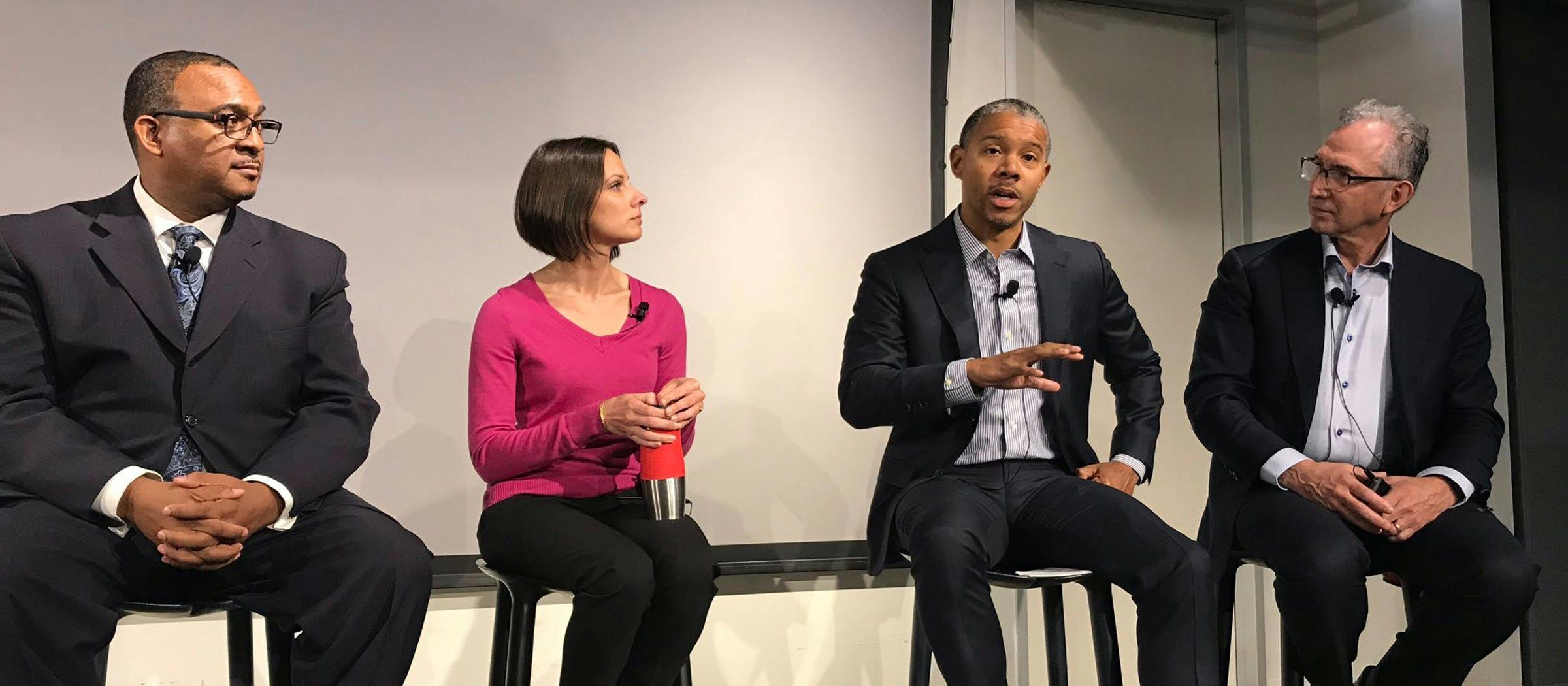Event recap: Chicago-area leaders reflect on health equity
On November 5, Blue Cross Blue Shield of Illinois (BCBSIL) and MATTER hosted a panel to discuss what the healthcare community can do to advance health equity. The panel discussion was moderated by Joel Farran, chief brand officer at Health Care Service Corporation, and panelists included Dr. Thomas Fisher, attending physician at the University of Chicago; James Williams, director of diversity, inclusion and equity at the University of Chicago Medical Center; Dr. David A. Ansell, senior vice president of community health equity at Rush University Medical Center; and Jessica Hager, manager of community health and nutrition and external engagement at Feeding America.
Below are a few of the notable quotes from the panelists.
Definition of health equity “So it’s not just Robert Wood Johnson‘s definition. But it’s something that needs to be evolutionary and our thinking and understanding of how society, the structural inequalities, the racism that exists, and our role in playing with that. We can’t do this work if we don’t engage the voices and the lived experiences of individuals who are disenfranchised within this experience.” -Jessica Hager
Institutional behavioral change “The behaviors we have to change to get this right are the hard-wired, institutional behaviors that replicate the historic injustices. And that’s where we have to get extremely granular in our institutions. I always say, narrative plus data plus action equals change. So, we need to look at how we are actually performing within our own institutions.” – Dr. David Ansell
Inclusiveness is good business “As we start to build these algorithms to drive decision-making, within the organization, it’s critical that we have a diverse test-set and a diverse set of individuals analyzing the algorithms so that you don’t exacerbate disparities, but also [have a diverse set of individuals] analyzing the decisions that are made after the outcome of whatever the logic is. We’re working in both of those areas. And so from an innovator’s perspective, I think it’s necessary that you have a diverse set of people that think differently around the table to define the problem and analyze the data because it’s very easy for a homogenous group to say, “We’re good..” But the literature shows that heterogeneous groups outperform homogenous groups from a decision-making perspective, and so it’s just good business to be inclusive in terms of how you define problems and set strategy and allocate resources and evaluate your work going forward.” – James Williams
Advice for innovators “My only piece of advice would be to keep in mind that you get what you pay for and to be very thoughtful about how you’re spending your money. Both with your partners (do they represent your values, goals, and experiences?) and the way in which you productize and promote your products. Are you putting them in front of the people that you want at a price point that matters? Are you buying equity in the work that you’re doing? I would not leave this up to the goodness in people‘s hearts. You guys have the ability, you have the power of the pocketbook and use it. Align the incentives in ways that both get you the outcome you want and does so in a very equitable way using proactive data, reshaping your intervention along the way and getting feedback from the customers, suppliers and team.” — Dr. Thomas Fisher
This panel was part of BCBSIL’s Health Equity Innovation Challenge, hosted in collaboration with MATTER. The challenge asks: How can we help close the gaps for BCBSIL members who are facing social, cultural and/or economic barriers to health care by advancing health equity and addressing the social determinants of health? Learn more and apply by the Monday, November 12 deadline: BlueChallengeIL.com.



